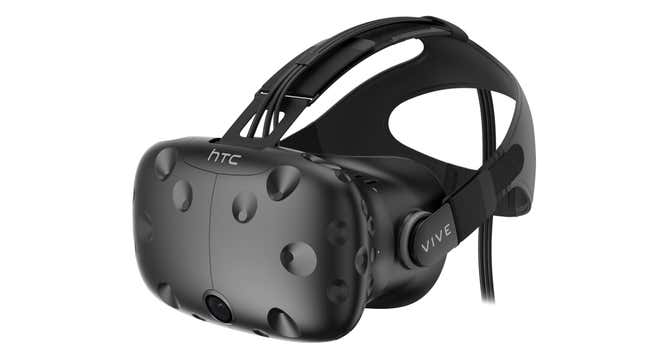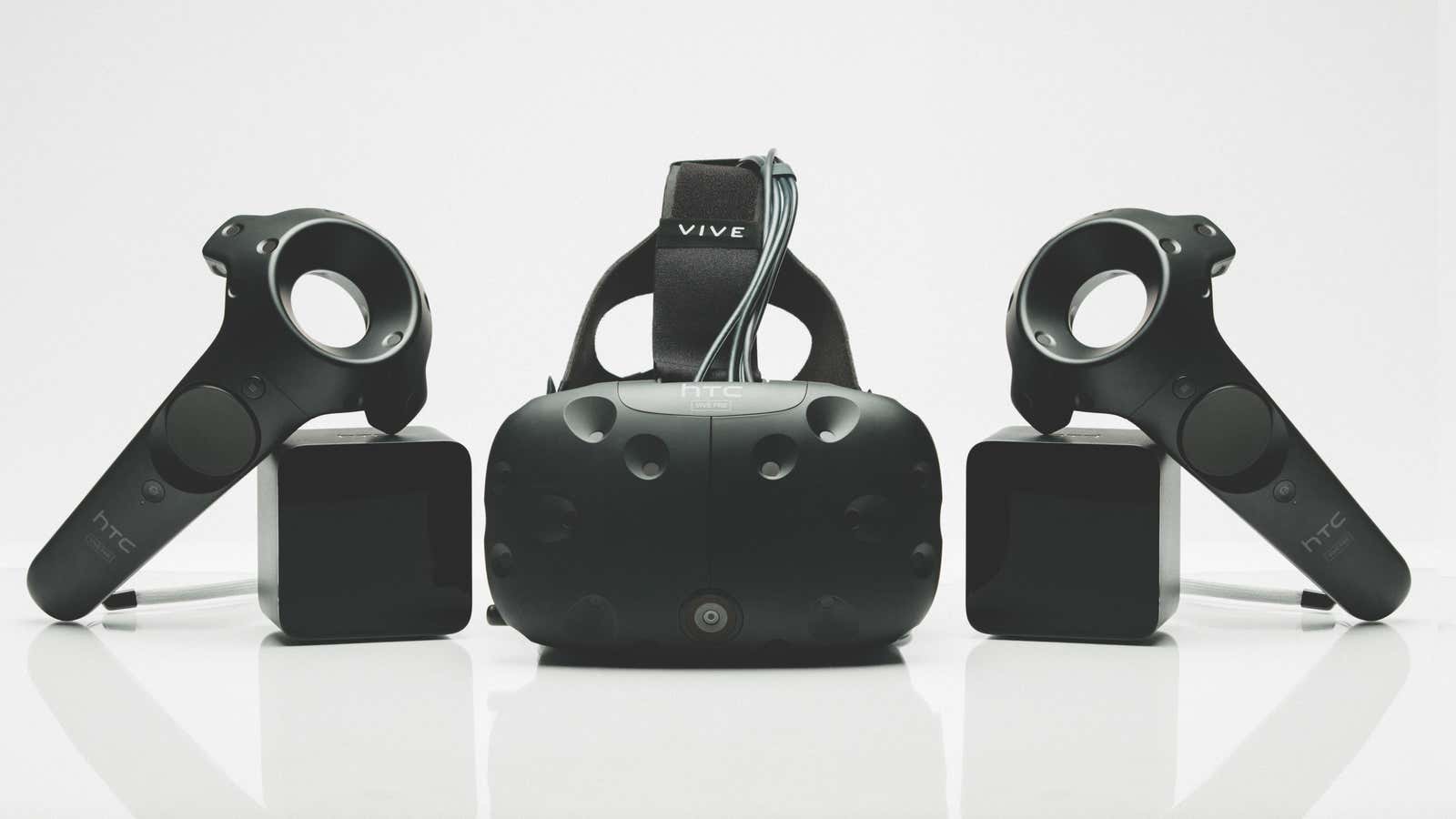At January’s Consumer Electronics Show in Las Vegas, virtual reality was seemingly everywhere. Even vendors with little to no direct connection to VR had some sort of VR demo on offer at their booths. Meanwhile, the crowd was buzzing with the news that Facebook’s Oculus Rift would cost $600 and start shipping in March. But a competing headset, the HTC Vive, was also impressing those in attendance, although there were no details about the pricing or release date for the headset.
This week at the Mobile World Congress in Barcelona, however, HTC was more forthcoming. The company announced that the Vive will cost $799, and will start shipping in early April. It said the Vive will be a slightly updated model from the ones that developers have been testing, with a design that’s meant to make it easier to wear, and a brighter display that’s supposed to provide a “deeper sense of immersion.”
The Vive will launch with a few features that the Oculus won’t have. Bundled with the headset will be two handheld controllers (the Oculus ships with an Xbox controller) as well as movement sensors that allow the system to track the wearer’s movement around a room. (Oculus will be selling handheld controllers, but haven’t said how much they will cost, or when this year they will be released.) HTC also said its headset will also be able to make and receive calls and texts—HTC is a traditional mobile-phone company, after all—and a front-facing camera will allow you to see the outside world while wearing the headset if you want, which the company says “demonstrates the ability to combine both realities without losing touch of either.”
According to some reviewers, the experience the Vive gives—including the level of immersion and the way it can track your movements—means it’s worth shelling out the extra $200 over the cost of the Oculus Rift. (For the record, Quartz tried out both consumer headsets at CES, and found them both to be enjoyable experiences, but something about the level of interaction and freedom of being able to walk around inside VR worlds while using the handheld controls to build new worlds indeed seemed to make the Vive, even in its earlier iteration, stand out over the Rift.)

Like the Oculus Rift, the Vive will come bundled with two games: One, called Job Simulator: The 2050 Archives, is meant to simulate, for future humans, what it was like to have a job—you know, in the days before all the jobs were taken over by robots. Another launch game, Fantastic Contraption, seems to let you build a massive Rube Goldberg machine. The Oculus Rift, meanwhile, will be launching with a flying and shooting game set in space, called Eve: Valkyrie, and Lucky’s Tale, a game that feels a bit like Super Mario 64, but with a fox.
Also like the Rift, the Vive will require a computer to run its immersive VR games and content. It’s been revealed that it will cost about $1,000 to buy a computer with enough power to support gameplay on the Rift; the Vive will need a similar sort of set up.
It’s hard to find a good parallel in tech-industry history to help predict how things will turn out for competitors in the burgeoning VR industry, a business representing a difficult mix of gaming, entertainment, and wearables. But perhaps one place to look at the effect that price has had on competing hardware makers is the video-game console business. At the launch of the PlayStation 3 and Xbox 360 consoles, Sony’s system cost about $200 more, and yet, at the end of their lifecycles, the two systems ended up selling about the same—Sony sold about 80 million PlayStation 3 consoles, which was about the same number of Xbox 360 consoles sold by Microsoft. So there’s an argument to be made that HTC’s higher price may not hurt it in the long run, if the product is solid.
Xbox and PlayStation, however, both had strong followings by the time those consoles released, and each company already had several experiences launching previous consoles—whereas the Vive and Oculus Rift are the first consumer VR products that both HTC and Oculus will release.
The Vive will be available for pre-order from HTC’s website on Feb. 29 in 24 countries, including the US, UK, Germany, and China. Pre-orders for the Oculus Rift opened in January.
